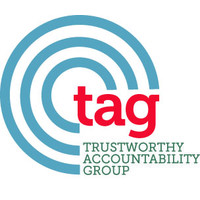
The first annual report by Project Brand Integrity (PBI), an initiative by the Trustworthy Accountability Group (TAG), found that, once alerted to the risks, 79% of European advertisers reduced their ad impressions on pirate sites, with nearly half of that group ending nearly all ads on pirate sites. As a result, overall reduction of advertising on pirate sites was by nearly two-thirds (66%).
TAG established PBI in February 2019 as a partnership with UK-based anti-piracy and brand safety technology partner White Bullet, to protect brands from unwanted association with digital content theft by alerting advertisers or their agencies to ads running on high-risk websites and those that infringe intellectual property (IP) in Europe.
The PBI annual report also outlined issues and trends in the fight against ad-supported piracy. In particular, the report found that piracy domains are rapidly changing, with 73% of all domains monitored since the programme’s launch now redirecting traffic, using mirrors or proxy websites, or becoming inactive. It also found a significant shift toward programmatic advertising on pirate websites, as 64% of the advertisers appearing on such sites last year were delivered via programmatic channels vs. 24% via affiliate marketing channels and 11% via sponsored content.
Read a summary of the effort (TAG press release)
Access the 2022 Annual Report on TAG’s Project Brand Integrity: Combatting A-Supported Piracy Across Europe
Why it matters
The PBI initiative has received positive endorsements from Sky and NBCUniversal. A 2021 report, Breaking (B)ads: How Advertiser-Supported Piracy Helps Fuel a Booming Multi-Billion Dollar Illegal Market, published TAG and the Digital Citizens Alliance detailed how legitimate advertising finds its way to fraudulent consumer end-points, and how pervasive it is. That report estimated that more than $1.3 Billion in advertising went to fraud, and that 73% of that ad volume went through Amazon (41%), Facebook (27%) and Google (5%)
Going forward, TAG plans to extend PBI’s efforts and further increase its effectiveness through new steps including a robust process to engage with advertisers that have – to date – been unresponsive to outreach. As part of that process, repeat offenders will be mentioned in future reports as well as be referred to the European Commission for recommendation to be included in its Counterfeit and Piracy Watch List.












